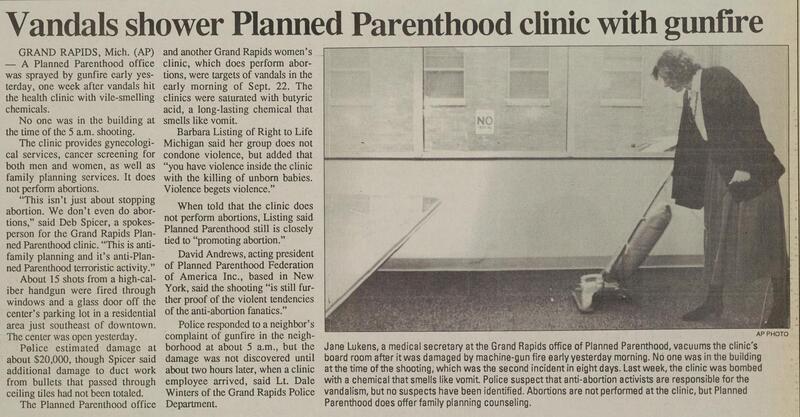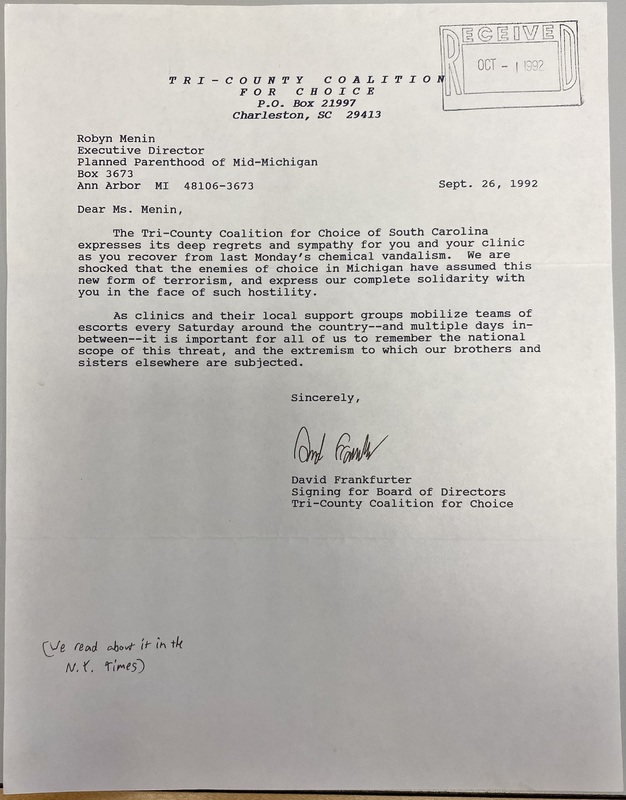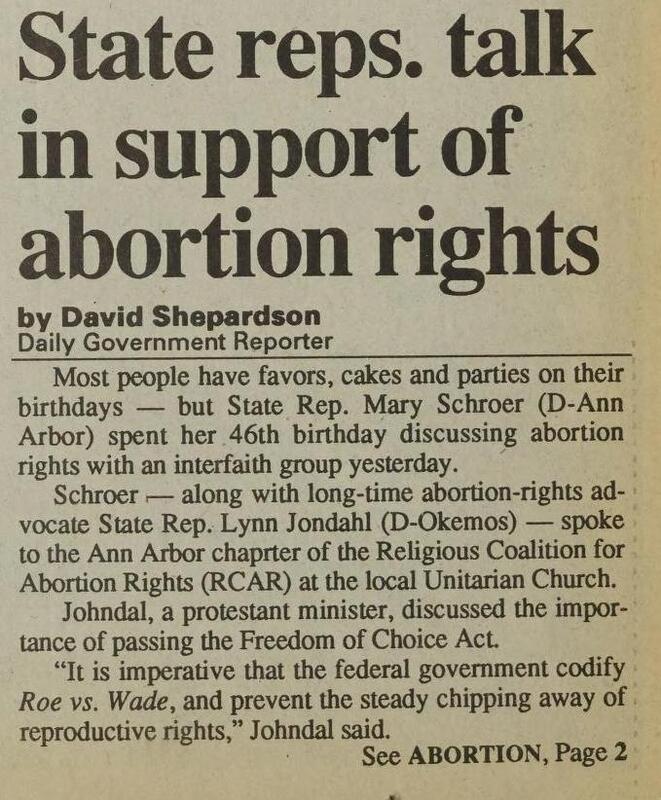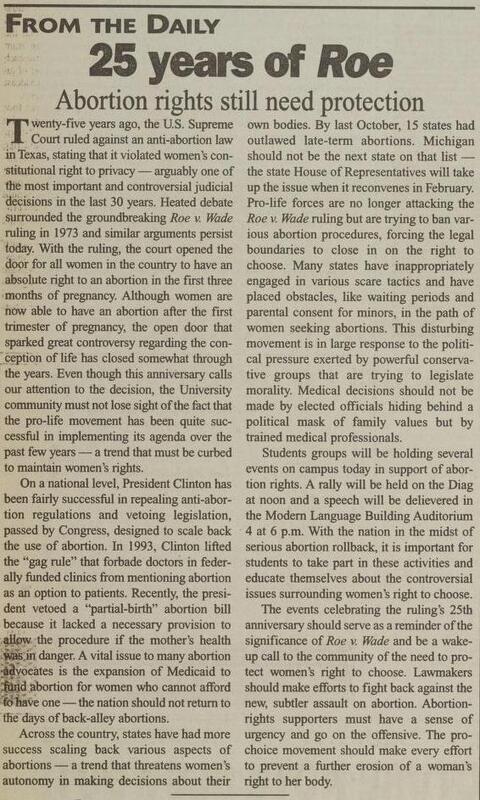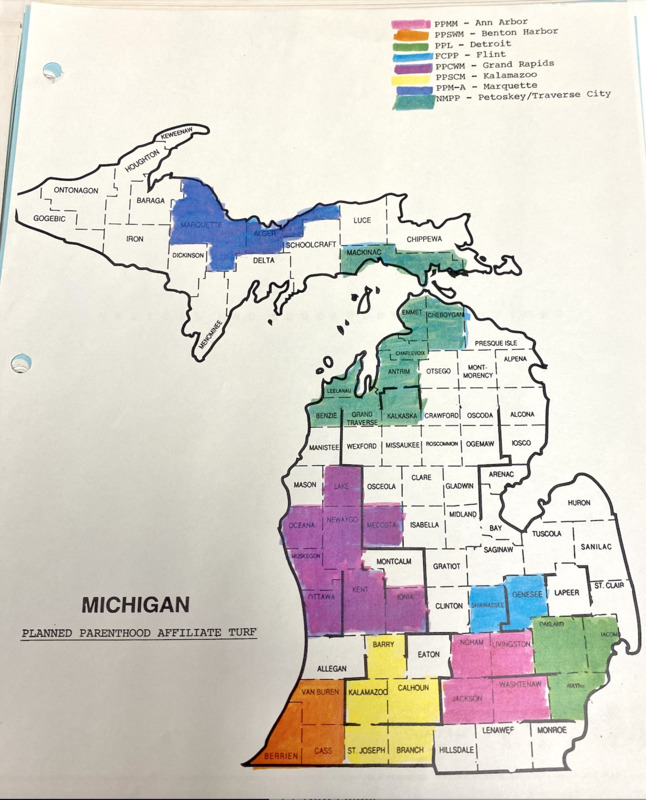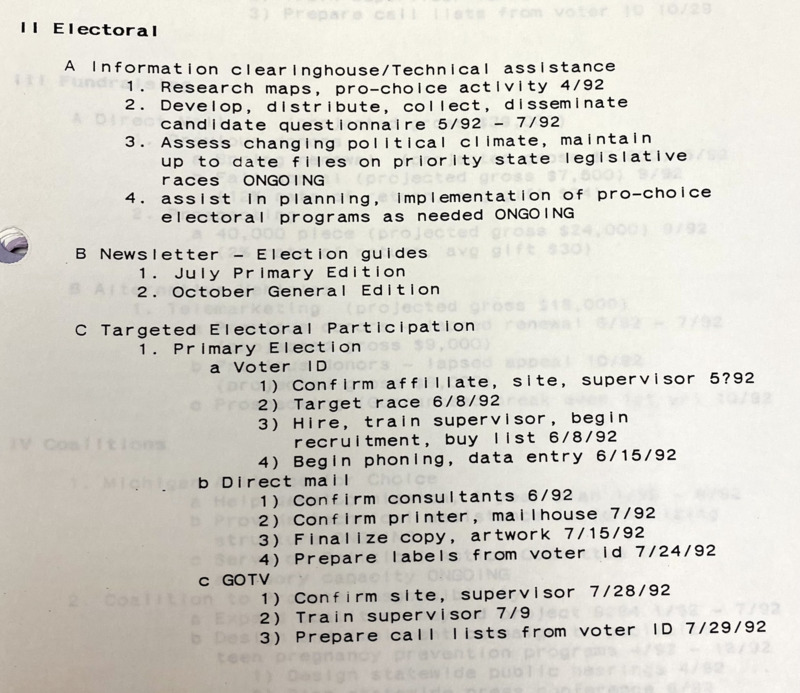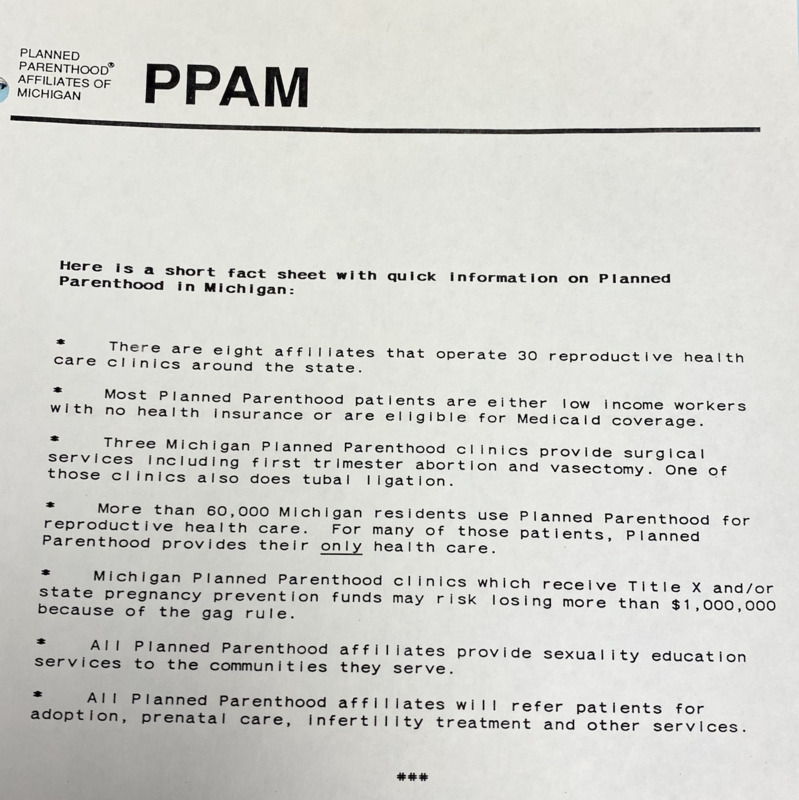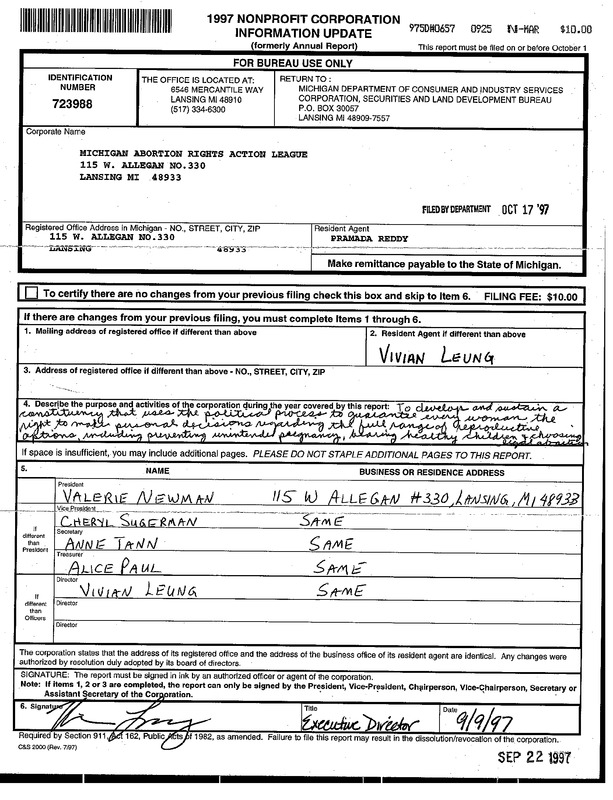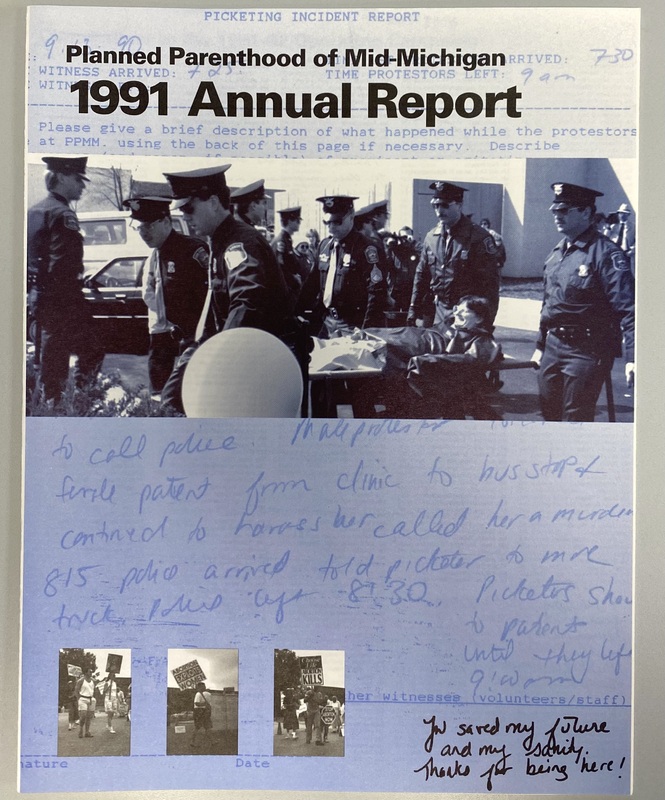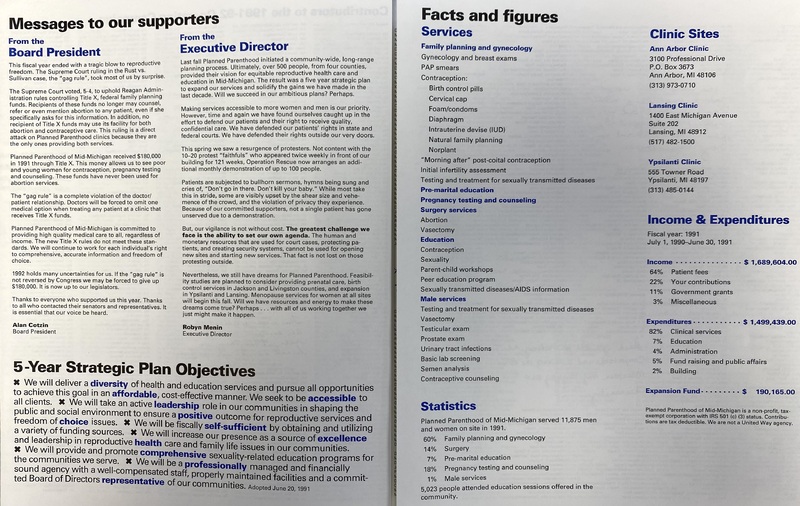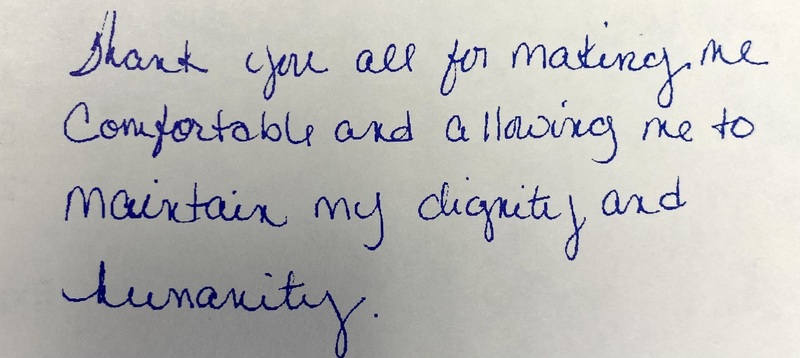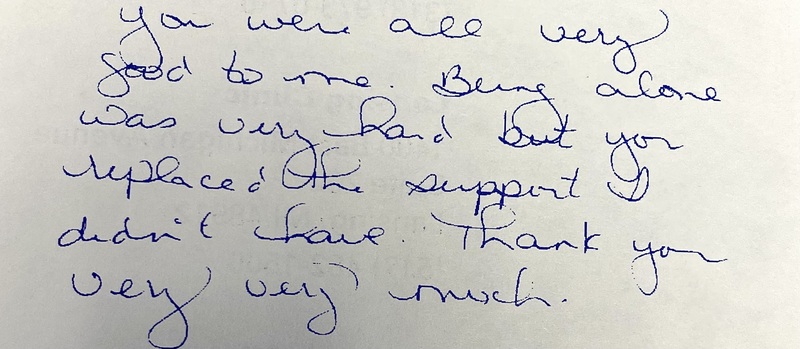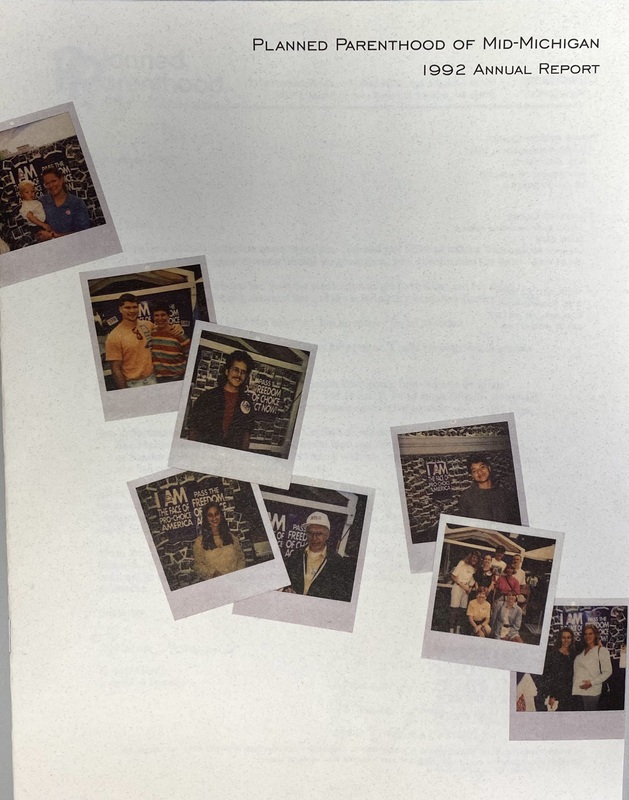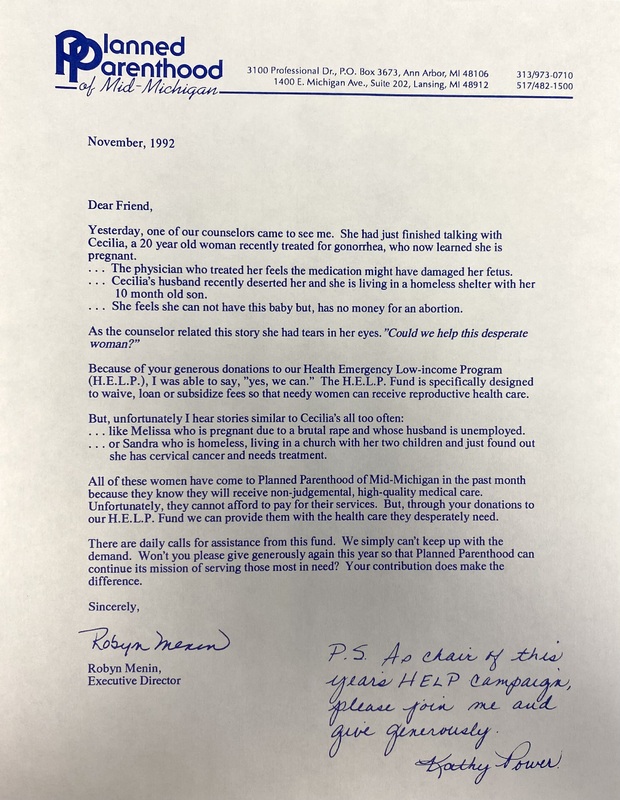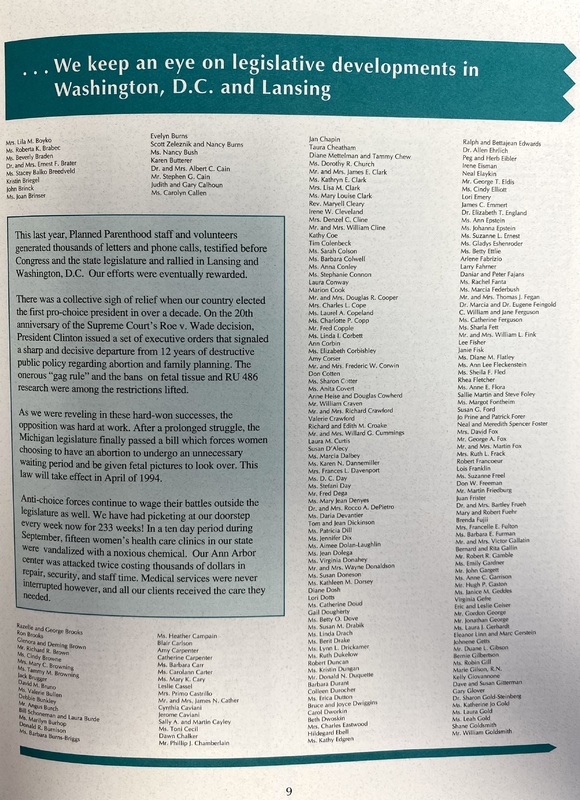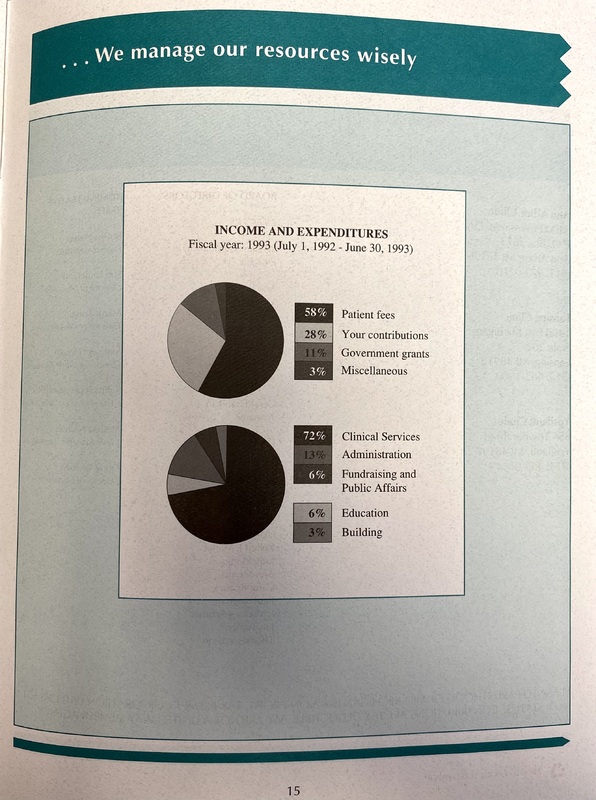1990s
The outlook on abortion in the 1990s can best be summed up as hopeful, but cautious. Many groups continued to emphasize the significance of the Roe v. Wade decision by celebrating each year on its anniversary and forming abortion activist and education organizations. However, as politicians continued to debate abortion, reproductive rights groups sustained their activism, urging politicians not to strip away abortion rights or create barriers to access.
Parental Consent Law
In 1990, Michigan state lawmakers passed a bill that required anyone under the age of 18 to obtain written consent from their parents before having an abortion. Formally called “The Parental Rights Restoration Act of 1990,” it was more widely known as the Parental Consent Law. Right to Life of Michigan, a pro-life activist group, revived the parental consent debate after a previous attempt to pass the legislation had been vetoed by the governor. A Michigan Daily article from September 1990 displays a photo of pro-choice protestors gathered at the state capital in Lansing, MI, in response to the then impending vote on the parental consent bill. The author, UM student Cecelia E. Ober, stated that the Parental Consent Law “is a particularly insidious threat to the interests of women” and would “inevitably increase the number of young women who will risk injury or death from illegal abortions, dangerous delays, frightening overnight stays, costs go bypass procedures and travel across state lines (1990). After the Parental Consent Law went into effect, the abortion activists held a rally on the University of Michigan Diag, where students and other community members criticized to the state’s new barriers to abortion.
Medicaid Funding for Abortions
As a result of a 1988 ballot proposal, Michigan voters eliminated Medicaid funding for abortions, spurring public backlash. An October 1990 article from the Michigan Daily depicts UM students protesting the Parental Consent Law as well as the ongoing repercussions of the reversal of Medicaid abortion funds. A report published in 2009 which “assessed the potential increased public assistance and Medicaid costs resulting from Michigan’s 1988 restriction on Medicaid funding of abortions” concluded that the law likely “led to an increase of 5800 births per year and “cost the state’s taxpayers $23-63 million” (Guttmacher Institute, 2009). In February of 1991, the Michigan Court of Appeals overturned the ban on Medicaid funding for abortions in a 2-1 decision, stating that the ban “violated women’s rights to privacy and equal protection in the Michigan Constitution” (Michigan Daily, 1991). Unfortunately, the reversal was short-lived—the case was appealed to the Michigan Supreme Court, which, in June 1992, upheld the ban on Medicaid abortions, denying reproductive healthcare to poor women across the state (AP 1992). Michiganders were hopeful that legislation from the Clinton Administration would force the state to allocate Medicaid funds for abortions, but in March of 1994, Michigan failed to provide said funding by the federal deadline.
Clinic Violence
After an sharp uptick in abortion clinic attacks in the 1980’s, clinics in the ’90’s were still not safe from the threat of vandalism. In September 1992, the Planned Parenthood Grand Rapids clinic was subject to two attacks. In the first attack, vandals sprayed the clinic with butyric acid. The second attack consisted of 15 gunshots fired through the glass door of the building. The letter below was sent to Planned Parenthood of Mid-Michigan by a pro-choice group in Charleston, South Carolina, expressing their solidarity after the chemical attack.
Planned Parenthood Advocates of Michigan (PPAM)
PPAM was founded in 1990 as the advocacy arm of Planned Parenthood of Michigan. Because Planned Parenthood is a 501 (c)3 organization, their grassroots political spending was limited. Federal tax law prohibited Planned Parenthood's from spending no more than five percent of their budget on lobbying expenditures. The first few years of PPAM's existence were spent building organizing infrastructure that was later implemented by Planned Parenthood Advocates chapters across the country.
Statewide Activism
Planned Parenthood Advocates of Michigan was far from the only group advocating for reproductive justice. Michiganders all over the state were organizing to fight for pro-choice causes, including the Michigan Religious Coalition for Abortion Rights and the Michigan Abortion Rights Action League (MARAL). The form to the left, filled out by MARAL directors, shows that the organization was focused on building a community of activists dedicated to protecting women's reproductive rights in in the state of Michigan.
Planned Parenthood of Mid-Michigan Annual Reports
Below are excerpts from Planned Parenthood of Mid-Michigan Annual Reports for select years between 1990-1999. Report items include clinic statistics and services, quotes from patients who received care at Planned Parenthood of Mid-Michigan, and information about the organization's accomplishments and goals for the future.
1991 Report
1992 Report
1993 Report
1997 Report






